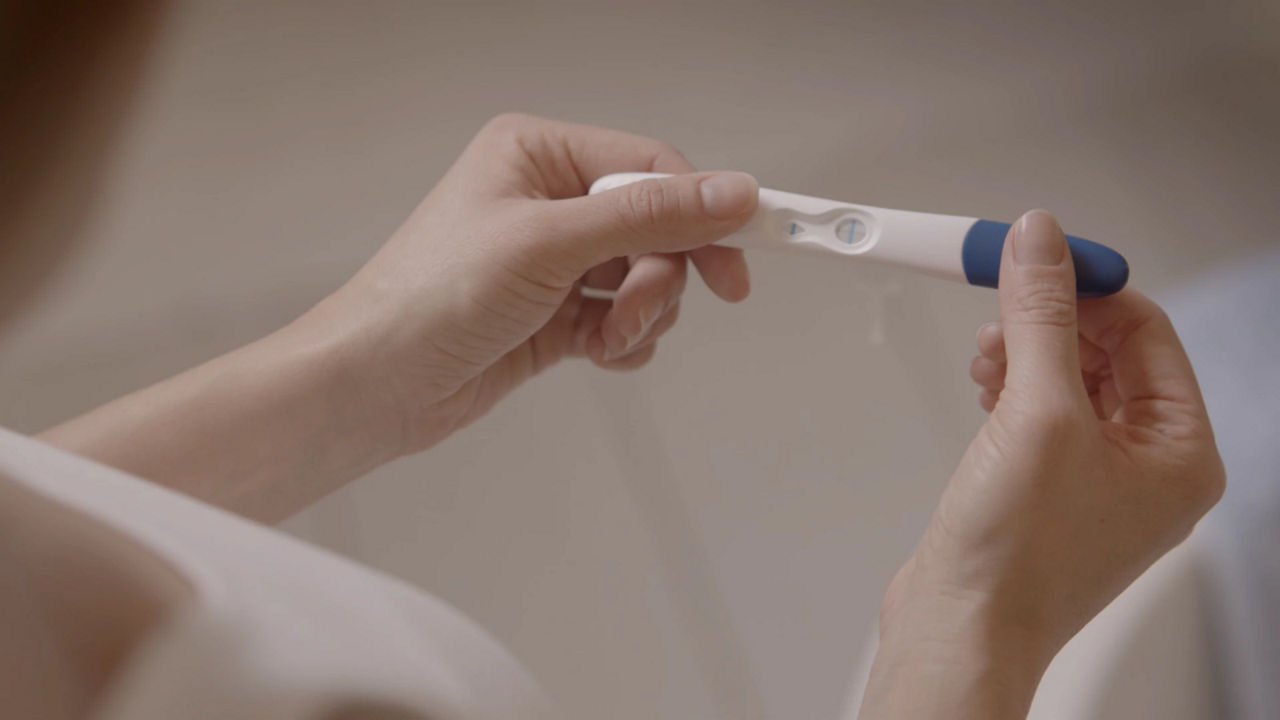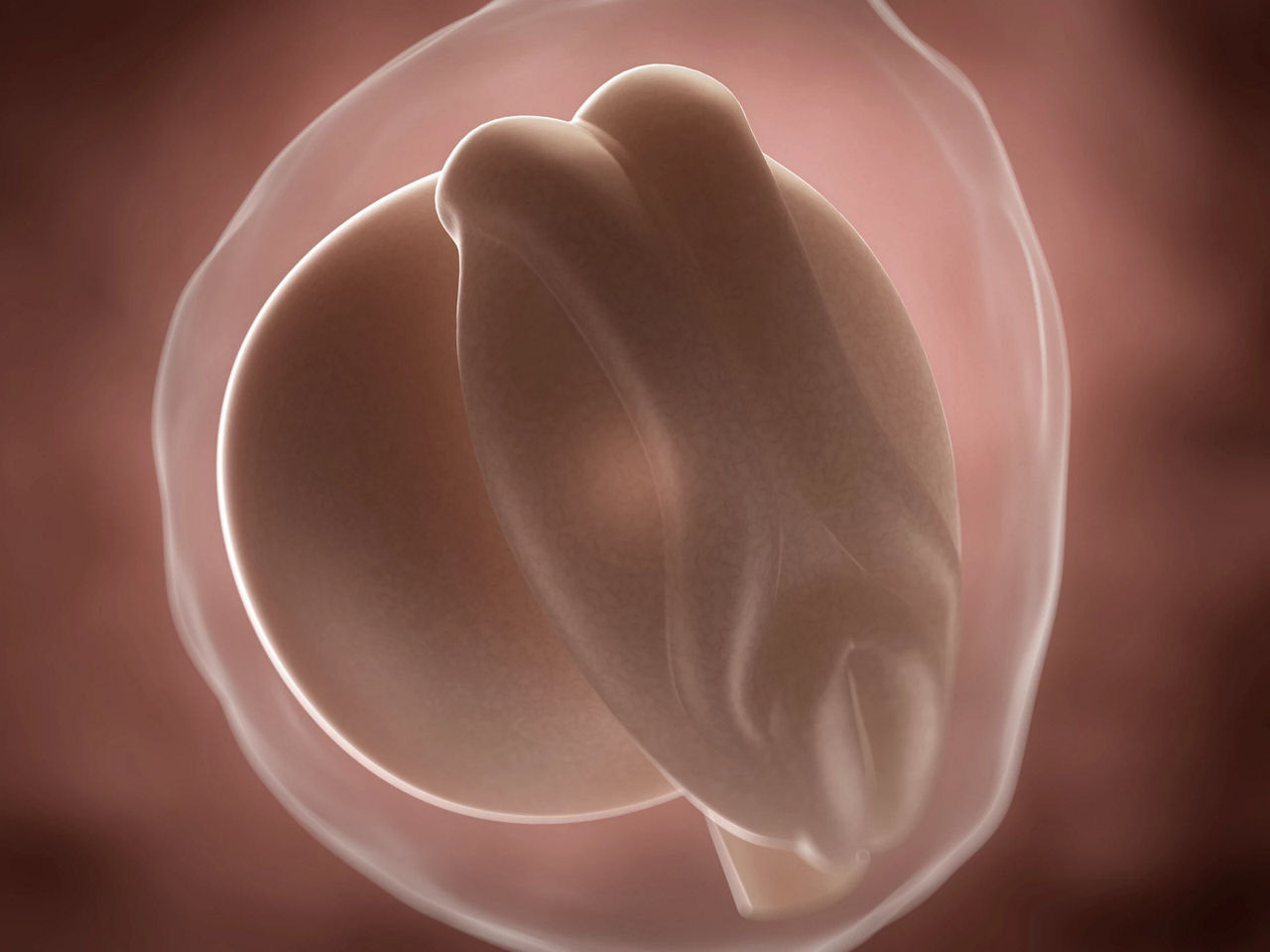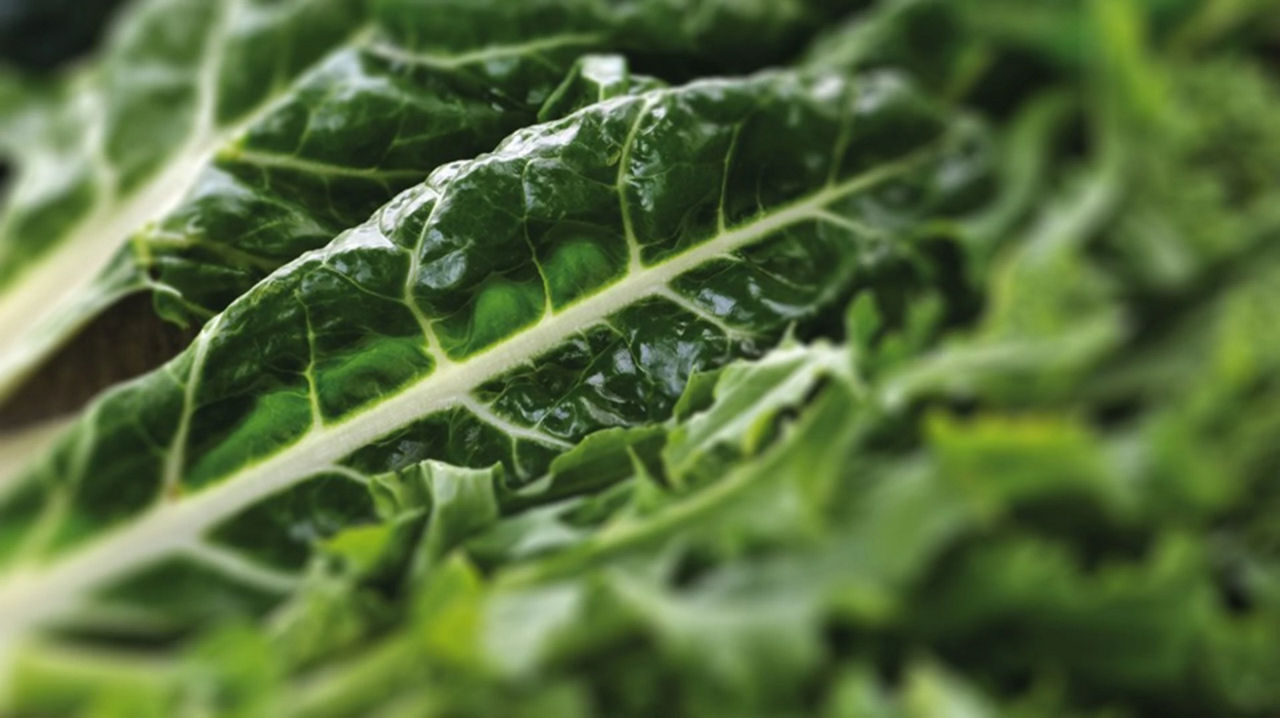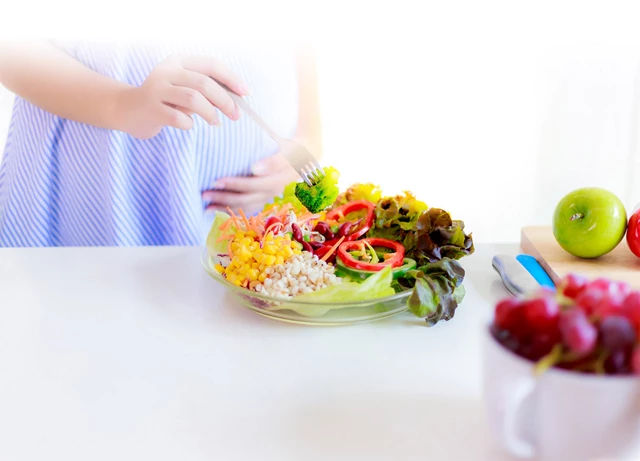The symptoms of early pregnancy are often very subtle, and it may be that you’re not noticing any at all right now. Everyone is different. Whilst some women experience the early signs of pregnancy, others won’t experience any symptoms at all. There's really no way to tell what your experience will be.
One of the first and most reliable signs of early pregnancy is a missed period, especially if your menstrual cycle is fairly regular. It’s possible that you’ll also experience some spotting or lighter bleeding at around the time your period would have been due, which is the result of the embryo embedding itself into your uterus(6). At this point, you may be wondering if you’re pregnant and decide to take a pregnancy test.
The hormonal changes you’re going though may also result in mood swings(7) - another common early pregnancy symptom. Be sure to keep an eye on how you’re feeling throughout your pregnancy, as well as after the birth of your baby. Make sure you’re taking care of yourself, and reasting when you need to. If you have any worries at all about your mental and emotional health, always speak to your doctor or midwife. You can learn more about this here.
Some other common symptoms of early pregnancy include (ref):
- Tiredness and fatigue. This is thought to be due to the hormonal changes in your body, and it’s not uncommon to feel tired or even exhausted, especially in the first trimester(8).
- Sore and swollen breasts. One of the early signs of pregnancy, and one that can sometimes be mistaken as being connected with your menstrual cycle. This is because it can often occur just before your period is due to start(6).
- A need to wee more frequently. This is a pregnancy symptom that, in early pregnancy, is thought to be due to the increased levels of the pregnancy hormone human chorionic gonadotrophin (hCG)(9). In later pregnancy, this symptom is usually a result of your growing baby pressing on your bladder. If you also notice a burning sensation when you wee, chills, cloudy wee or blood in your wee, please speak to your doctor as this may indicate a urinary tract infection, sometimes referred to as a UTI(10).
- Changing tastes in food. During your pregnancy, you may find yourself craving foods that you wouldn’t normally eat, and developing a dislike of the ones you do. Whilst it’s been suggested that this might be due to hormonal changes, further research is needed here(8).
- A metallic taste in your mouth. Following on from the above, some women describe experiencing a metallic taste in their mouth in early pregnancy.
- Morning sickness. Perhaps the most well-known pregnancy symptom, morning sickness, usually starts around week 4 and is thought to be caused by pregnancy hormones.
- A milky white discharge from your vagina. It’s perfectly normal to experience an increased level of vaginal discharge during early pregnancy, as this helps to protect your womb from infections. A milky white discharge is healthy, but always speak to your doctor if it becomes itchy and painful, changes colour or smells unpleasant(9).
- Headaches and dizziness. Headaches are a common symptom of early pregnancy and usually improve with time. Try to get plenty or rest to help ease any discomfort. However, headaches can also be a sign of preeclampsia, so if your symptoms get more severe, always seek medical advice(12).
- Cramping. This can sometimes be mistaken for period pain in early pregnancy and is usually nothing to worry about. Cramping can be caused by constipation, bloating and trapped wind, as well as the ligaments in your tummy adapting and changing to support your growing baby(13).
- Acne or changes to your skin. This might include something called chloasma or ‘the mask of pregnancy’, which causes darkened patches of skin on your face.
- Bloating. A common early sign of pregnancy, the pregnancy hormone progesterone is relaxing the muscles in your womb, ready to accommodate your growing baby. As a result, you may feel bloated, and experience excess wind(14).
- Congestion. This is most likely caused by the hormonal changes your body is going through(15).
Whilst the above are all common early pregnancy symptoms, if you’re worried about anything you’re experiencing, don’t hesitate to have a chat with your doctor or midwife so that they can help to put your mind at ease.







